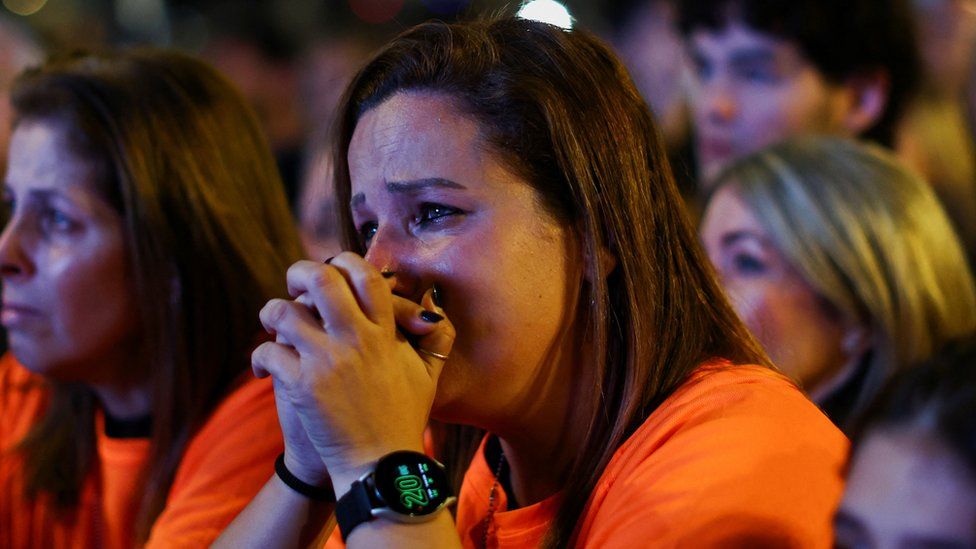Israel hostages in Gaza: We have evidence their health worsening, say families
Families of people being held captive in Gaza say they have "solid intelligence" that the health of several hostages has deteriorated.
Some are "now in immediate danger", the group of hostages' families said in a letter to Israel's war cabinet.
Pressure has been growing on officials over the 138 people still being held by Hamas and other armed groups.
Some of the freed hostages met Israel's leaders on Tuesday in a meeting that witnesses say turned rowdy.
Israel has repeatedly pledged to do everything it can to rescue the remaining hostages. Some 110 hostages have been released in total - but a week-long truce under which dozens were freed ended last week and since then Israel has resumed its bombing of Gaza.
In a letter sent to the war cabinet, the Hostages Families HQ group said: "We have received solid intelligence that there are abductees whose condition has deteriorated and are now in immediate danger."
They said at least one-third of the hostages were suffering from underlying illnesses and needed regular medical treatment - and going without such treatment was dangerous.
Many abductees were also suffering from injuries from the 7 October attack - such as gunshot wounds or amputations - while some were tortured and abused, the group added.
"Based on this data, we demand that you act urgently, with initiative and creativity to obtain a deal for the immediate release of all the abductees - for them every additional day in captivity is a real danger to their lives," it said.
It is thought the evidence they cite has come from the newly-released hostages, who on Tuesday evening held a meeting with Israel's prime minister and war cabinet and described what they saw during their captivity.
Observers say the meeting turned tense and disorganised - with some accusing the government of putting politics before the wellbeing of their loved-ones.
According to Israeli newspaper Haaretz, one former hostage - Israeli nurse Nili Margalit - told the meeting she had been looking after some of the elderly people being held captive, and that they suffered from heart disease, kidney failure and Parkinson's.
"They lie on mattresses all day long. I don't know how they manage since I left," she said.
FULL ARTICLE AT: https://www.bbc.co.uk/news/world-middle-east-67640750

No comments:
Post a Comment